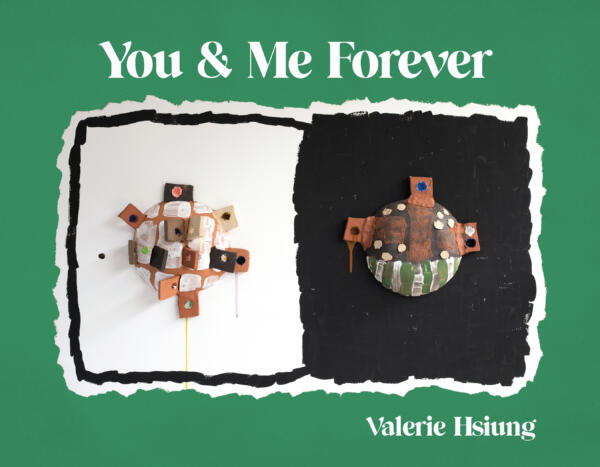
You & Me Forever centers on one primary question: how do we attach language to the unspeakable, the indescribable? In this collection, Valerie Hsiung develops a linguistic poetics—a cultural study of how “human words” fail again and again to touch the truth of traumatic experience. She explores how language carries and empties itself of meaning, consistently folding into its own void.
Reminiscent of Donika Kelly’s Bestiary: Poems, this collection considers the body as half-human and half-something else as the speaker grapples to come to terms with assault and reclamation. Animals in You & Me Forever haunt the speaker’s form. Just as language transforms, breathing as it takes on new meaning, so does the body transform with self-perception. Hsiung writes,
“The wolf laps at the water, the pen glides over paper, the wolf laps at the water, the AI touches my hands, the wolf laps at the / river, we are clowns, and there is nothing between us. I lick and lap at the magnetic water, become a part of the magnet, we / are clowns.”
The speaker and her language blend in these poems, their shifting identities merging to one another. Metaphor slips readily to physicality. The speaker is not only like a wolf—she is a wolf.
Invoking the history of defining women’s bodies by their perceived worth, Hsiung notes the language of family distancing after traumatic events. After a girl is “pulled into a car,” the father says she is “no longer a girl now,” a fuzzy description indicating either adulthood or non-human transformation. Taking on this body that is no longer a girl, no longer definable by human description, she “writes a letter to her long-lost dog family now, explaining her absence in another forged and preemptive goodbye.” The girl physically embodies the rhetoric of transformation, continuously shifting into a form that doesn’t quite match her family’s expectations. The tentative language of sexuality and violence harkens to poets working in the same thread: Anne Carson’s Autobiography of Red, Emily Skaja’s Brute, and Alice Notley’s The Descent of Alette, among others. In transformational rhetoric, we find molting, shifting bodies.
These poems are crafted with the edges of words, the empty spaces, the redactions. Hsiung displays the shiftiness of collective and private memory, the doubt edging the speaker’s knowledge and recollections: “It used to be safe to walk home by ourselves is the myth that they tell us,” but the girl—the “no longer a girl”—in these poems finds recognizable suffering in “ancient literature” in which “rape was as common as wild was common.” Throughout these stories, she finds the language that doesn’t quite fit her experience but fills in the gaps her own familiar rhetoric leaves behind. Hsiung cuts to the core of language’s fallibility: “she was merely a child. And it was a society that’d / labeled her a monster—a specimen.” The fault lies not with her body, transformed or preserved, but instead with those who cling to dehumanizing rhetoric to create monsters of the abused.
Hannah V Warren is a doctoral student at the University of Georgia where she studies poetry and speculative narratives. Her chapbook [re]construction of the necromancer won Sundress Publications’ 2019 chapbook contest, and her works have haunted or will soon appear in Passages North, Mid-American Review, Moon City Review, and Redivider.